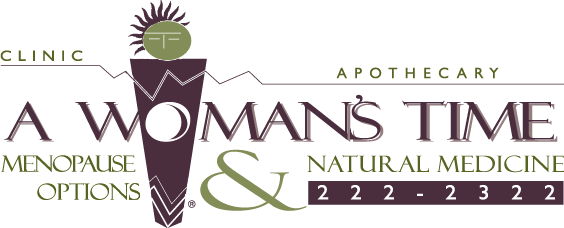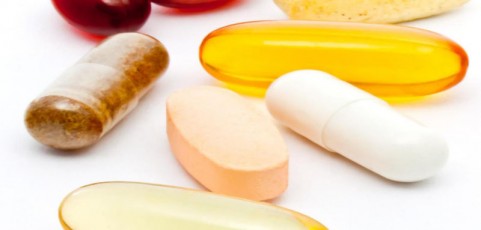Due to recent news about potentially inferior herbal products sold at large mass market chains, some of our patients have asked us about quality of supplements and how can they be sure they have something of high quality.
On February 3rd, 2015, New York State Attorney General (AG) ordered four major retail and drugstore chains including Target, Walmart, Walgreens, and GNC to stop selling several store-brand herbal supplements found to be mislabeled and containing possibly harmful ingredients. The investigation involved DNA barcode testing of 78 samples collected statewide. Supplements advertised as echinacea, garlic, ginko, ginseng, saw palmetto, St. John’s wort, and valerian were found to contain only 21% DNA of the plants listed on labels. Other ingredients found included fillers such as legumes, peas, and rice powder, non-active constituents such as asparagus, wild carrots and houseplants, and common allergens such as wheat. The report emphasized the lack of strict FDA regulation and safety standards in the growing supplement industry.
The New York State AG report brings up two very important issues that need to be addressed.
1. Not all supplements are created equal.
It is important to keep in mind that not all products hold the same equality standards, no matter what the packaging or label may claim. Those of us in the health industry know that there is a huge variation in what is made available to consumers.
Although The Food and Drug Administration requires companies to verify their products are safe and properly labeled, it does not have a strict approval process in place. This does not mean that all supplements are bad or ineffective because there aren’t stringent FDA requirements.
Licensed practitioners who use nutritional and botanical therapies from premium suppliers and manufacturers can attest to the quality assurance practices we trust and rely on. Such practices include scientifically validated laboratory testing, ongoing third party verification of quality, purity, and accurate labeling, raw and finished product testing for heavy metals, solvents, pesticides, and common allergens.
2. DNA testing is not the gold standard for measuring the quality and potency of nutritional and botanical supplements.
The Council for Responsible Nutrition, American Botanical Council, and American Herbal Products Association criticized the DNA barcode testing used by the New York State AG’s office stating that it is not the appropriate technology used by botany, pharmacognosy, or natural product chemistry experts when doing herb and medicinal plant research. DNA barcode testing often cannot identify botanical material due to extraction methods, and results of such testing needs to be confirmed through other means, such as chromatography or microscopy.
Bottom-Line: Evidence and experience supports the use of nutritional and botanical supplements from companies that exceed standards for quality assurance.
Talk to your trusted naturopathic physician about the supplements you take to ensure they are right for your set of health concerns and have strict purity and quality assurance programs in place.
See below for more information about A Woman’s Time Quality control of supplements carried.
FAQs Regarding Supplement Purity and Quality:
A Woman’s Time
In recent news, New York State Attorney General (AG) ordered four major retail and drugstore chains including Target, Walmart, Walgreens, and GNC to stop selling several store-brand herbal supplements found to be mislabeled and containing possibly harmful ingredients. A Woman’s Time has developed the following to help answer common patient questions that might arise from this report.
Should I be taking supplements?
We believe that dietary and herbal supplements can be an integral part of a good health regimen, but they must be correctly prescribed and of the highest quality and purity in order to serve their purpose. That’s why A Woman’s Time adheres to stringent quality standards when selecting supplements for sale.
Why should I trust the purity of supplements at A Woman’s Time?
We have expertise in the field of herbal and nutritional supplements and understand there is a wide range in the quality of products made available to consumers. Our supplement selection guidelines are outlined in the FDA Dietary Supplement Health & Education Act, FDA 21 CFR 111 cGMP guidelines and USDA Organic standards.
We take special pride in the purity and efficacy of the herbal and nutritional supplements we carry at our clinic. They have a proven track record of good manufacturing practices and produce their supplements in FDA-certified facilities. They use quality assurance practices such as scientifically validated laboratory testing, ongoing third party verification of quality, purity, and accurate labeling, raw and finished product testing for heavy metals, solvents, pesticides, and common allergens.
We want to be the trusted editor for our patients when it comes to the quality of our vitamins and supplements. All of the herbal and dietary supplement brands that A Woman’s Time carries are evaluated for their use of current Good Manufacturing Practice standards, for the purity and potency of ingredients, and for their formulations and efficacy.
Are there any other factors that go into your product selection?
In choosing supplements, we rely heavily on the expertise of our physicians and advisors – made up of both medical and naturopathic doctors who are well versed in the use and efficacy of different supplements and brands.
A Woman’s Time also partners with brands of like mind; those who use pure, efficacious ingredients. Most of the products we carry are “professional brands” that were developed and are in use in doctors’ clinical practices and have met a higher standard and more stringent testing.








